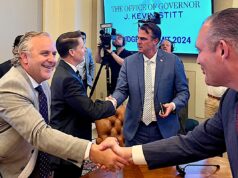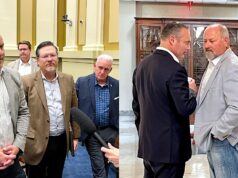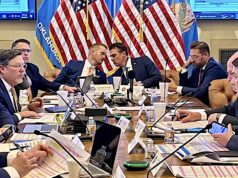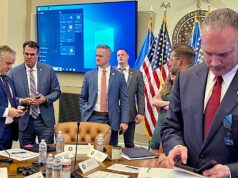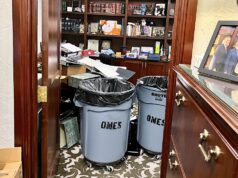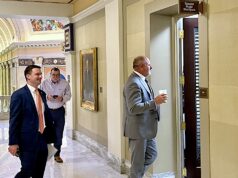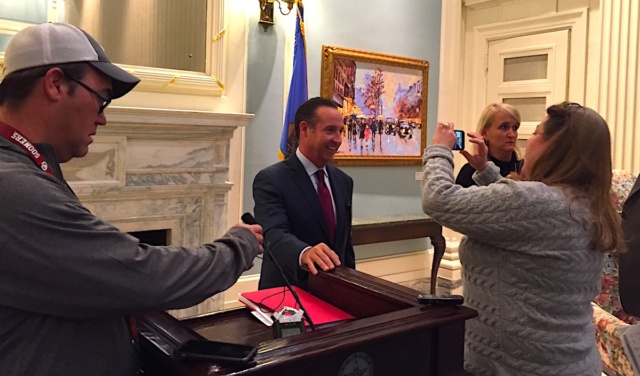
State leaders are expected to certify a $692 million estimated budget shortfall for the 2018 Fiscal Year, according to numbers announced this afternoon by Oklahoma Secretary of Finance Preston Doerflinger.
Doerflinger called media together at 2 p.m. today on the second floor of the State Capitol, and he read a litany of numbers comparing state-income source estimates to previous years. He noted that the use of one-time funds to fill last year’s budget gap helped kick the state’s financial can down the road for this year.
“Because of those one-time uses of money (…), the hole is more accurately reflected by the $868 million number,” Doerflinger said. “There is no projected revenue failure in the general revenue fund (for this year’s budget), but also no deposit into the Rainy Day Fund at the end of FY 2017.”
Use of that Rainy Day Fund will likely be considered this year by the Legislature, which will feature more than 40 new members who have never been involved in a state budget before.
But Doerflinger outlined the constitutional limitations of the Rainy Day Fund for media Tuesday afternoon, one day before the Oklahoma Board of Equalization will meet Wednesday morning to certify the projections. The BOE will make its final certification in February.
‘Serious conversation about revenue’ needed
Doerflinger also renewed a call for the Legislature to generate new revenue.
“It’s important for everybody to realize you’re not cutting your way out of this situation. I’ll start there,” Doerflinger said. “We have to have a serious conversation about revenue in this state. The opportunity exists to put in good policy that will put the state on good footing this year and every year moving forward.”
Asked what could make the difference this year versus last year in motivating legislative action on new revenue, Doerflinger pointed to the upcoming year’s altered cast of characters.
“I think the complexion of this Legislature [means] there’ll be more interest in looking at what the realities are,” he said. “We certainly will signal in the governor’s executive budget what reality is and will provide some mechanisms to deal with that reality.
“And that will require some tough decisions. I’m not sure why anybody would want to be in this job if they weren’t willing to make tough decisions.”
He also placed some blame upon himself.
“I’m an eternal optimist,” Doerflinger said. “I’m going to take some responsibility. I’m not sure that we have done as good a job as we possibly could educating members on the reality. And I think this year, with as many new members as we have, we have a good opportunity of putting new revenue on the table.”
Taxes, exemptions offer possible revenue opportunities
Doerflinger praised Sen. Kim David (R-Wagoner) and Rep. Leslie Osborn (R-Tuttle) as competent appropriations leaders in their respective chambers. He also noted the new leadership terms of House Speaker Charles McCall (R-Atoka) and Senate President Pro Tempore Mike Schulz (R-Altus).
Reforming the state’s sales tax — and services currently exempted from it — has been part of Doerflinger’s proposal in the past.
“Our economy has changed to a services-based economy,” he said. “We have to have a serious conversation on looking at some of the sales tax (and sales tax exemptions).”
He finished his press conference by reiterating his belief that the Legislature cannot fix the problem by cutting state agencies even further.
“We have agencies that have experienced cuts as large as 40 percent since 2009,” Doerflinger said.










